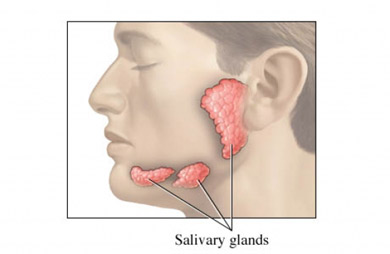Sjogren’s syndrome affects between 200,000 and 4 million people in the United States. Most of the people affected are over the age of 50, and 90 percent are women. Named for the Swedish doctor who identified it in 1933, Sjogren’s syndrome is an autoimmune disorder, which means that it causes your body to work against itself. Sjogren’s destroys the glands that secrete mucous in your body, including the ones that produce tears in your eyes and saliva in your mouth. Although this is not a life-threatening disease, it does get progressively worse, and it can damage your eyes and mouth if the symptoms aren’t treated.
Sjogren’s syndrome can be either primary or secondary. Primary means it is a condition by itself, and it affects mostly your eyes and mouth. Secondary means it’s a side effect of another autoimmune disease such as rheumatoid arthritis or lupus.

Sometimes it’s difficult to diagnose Sjogren’s syndrome because the symptoms may be vague at first and don’t always happen at the same time. Along with the symptoms above, people with Sjogren’s may experience burning tongue and throat, gritty eyes, tooth decay, digestive problems, dry skin, lung problems, kidney problems, muscular weakness, and extreme fatigue.
No one knows what causes Sjogren’s syndrome. It may be related to heredity, hormones, or a virus that lies quietly in your body until it is suddenly triggered. If your doctor diagnoses your symptoms as Sjogren’s syndrome, there are things you can do to make your life easier and keep yourself more comfortable.
- Moisten your mouth with milk. A recent study showed that drinking small sips of milk throughout the day, as well as drinking milk at meals, helped people with Sjogren’s feel more comfortable. It also helped prevent tooth decay.
- Chew on this. Gum that contains the sugar substitute xylitol can be found at any supermarket checkout counter. Xylitol stimulates your saliva naturally, so it’s an easy, inexpensive, and tasty way to help your dry mouth.
- Try a tablet. If your Sjogren’s syndrome is not severe, over-the-counter tablets may help stimulate your own saliva. These orange-flavored tablets contain the sweetener sorbitol, along with calcium phosphate to protect the minerals in your teeth.
- l Send in a substitute. You also can take advantage of several products designed to substitute for your own saliva. They are the most effective way to moisten a severely parched throat and mouth. Some even contain fluoride to protect your teeth from decay. Look for those with the American Dental Association seal of approval.
The long-range plan for Sjogren’s syndrome
- Get good professional care. Be sure to visit Dentistry At Its Finest for a consultation so you can stay ahead of any problems that Sjogren’s syndrome might cause. Tooth decay is a particular concern because you have no saliva to protect your teeth. So it’s important to keep your mouth and teeth as clean and well-cared-for as possible. It’s also very important to check reviews if you are choosing a new dentist, I found a Richmond dentist recently with amazing reviews and they were just wonderful so that’s a great example of how to do that. It is also very much worth looking for dental treatment abroad as you can save massive money in doing so (as some dental treatments are very expensive). For example, you can find dental treatments in places like Tijuana in Mexico with much lower prices, so you can save a fortune by using such dentists.
- Drink more liquids. This is especially important at mealtime, when your saliva may not be enough to moisten your food.
- Avoid drugs that dry. Anticholinergics, antihistamines, and decongestants are among the drugs that will dry out your mucous membranes. Stay away from these drugs, or ask your doctor or pharmacist for a substitute. Also ask your doctor if dryness is a side effect of any new drug she prescribes for you.

- Use a humidifier (learn about humidifiers). Moist air will be kinder to your dry mouth and eyes. Try to avoid air conditioning as well. It dries out the air and can irritate tender mucous membranes.
- Watch your diet. Don’t let the discomfort of Sjogren’s syndrome cause you to miss out on good nutrition. If your mouth is too sore at times to eat properly, try a liquid protein substitute, available at grocery and discount stores. You must eat well to keep up your strength and health.
- Whether your dry mouth is a result of chronic illness or just a temporary challenge, it’s an aggravating aspect of life. But today, more than ever before, you have a variety of ways to wet your whistle. Try our tips above and accept your dry mouth with a sense of humor, and you’ll soon be whistling a happier tune.